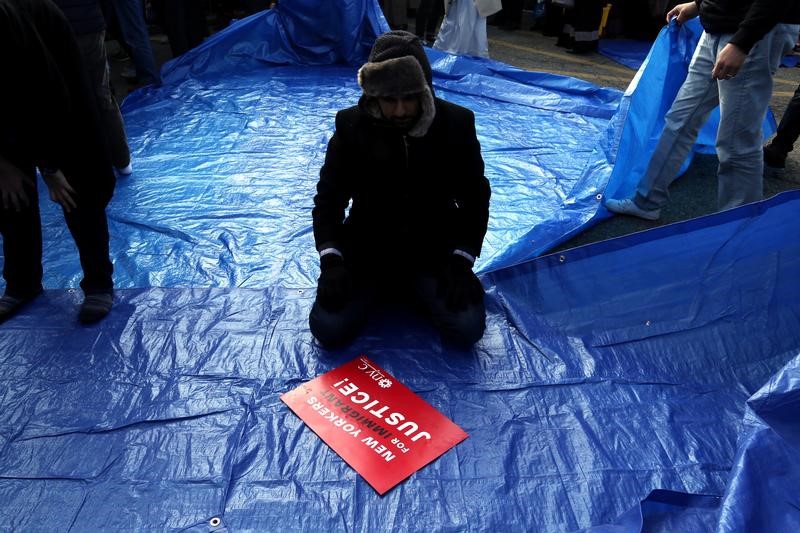WASHINGTON (Reuters) - A high-profile conference on Libya planned for mid-February in Washington has been postponed, the organizers said on Friday, citing U.S. President Donald Trump's temporary ban on nationals of seven Muslim-majority countries, including Libya, from entering the United States.
The Feb. 16 conference titled "Libya-U.S. Relations 2017: New Vision, Hope and Opportunities," and co-hosted by the National Council on U.S.-Libya Relations, had listed Libyan speakers, including two former prime ministers and the head of the National Oil Corporation (NOC).
As a result of the executive order, "banning Libyan citizens from entrance to the USA, it will not be feasible for the full complement of speakers, sponsors and guests to be in Washington, D.C., as originally planned," a statement from the conference organizers said.
A new date for the conference would be announced soon.
The executive order by Trump comes at a time of uncertainty over U.S. policy in Libya, which remains mired in the chaos that followed the NATO-backed 2011 uprising against long-time leader Muammar Gaddafi.
"This administration recognizes the role of the oil industry in economic stability and recognizes the importance of economic stability for political stability," Rihab El Haj, a member of the National Council on U.S.-Libya relations, told Reuters.
"We have been working for visa waivers for speakers and key sponsors and based on our conversations with the various institutions involved in making the decision, there was consensus this was an important event and there is political will to facilitate the conference but it's just a question of timing and we understand that humanitarian exceptions are a priority," she said.
The United Nations-backed Government of National Accord (GNA) was strongly supported by the administration of former President Barack Obama, but has struggled to assert its authority in Tripoli and beyond.
Factions in eastern Libya aligned with a rival government and Khalifa Haftar, an influential military commander, welcomed Trump's election, hoping for more support for their anti-Islamist stance. Several speakers who had been slated to attend the conference are connected with or loyal to eastern-based factions.
"Generally speaking, the Department of Homeland Security and Department of State may on a case-by-case basis, and when in the national interest, issue visas or other immigration benefits to nationals of countries for which visas and benefits are otherwise blocked under this executive order," said William Cocks, spokesman for the State Department's Bureau of Consular Affairs.

"As visa records are confidential under U.S. law, I'm unable to discuss any individual cases."